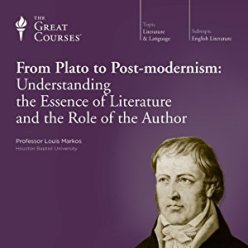I’m taking it easy this week, nothing too crazy — just sharing good meals and wine with friends. Which is probably a good example of my goals for the year: putting family and loved ones first, slowing down (to go further), and deliciousness. (Single Thread Farms blew me away.)
2016 was a year of incredible contrasts: it was the saddest and most challenged I’ve ever been with the passing of my father, and while that overshadowed everything there were also bright moments of coming closer to family, deepening friendships, and growing professionally with incredible progress from both WordPress and Automattic. That momentum on the professional side is carrying through and right now I’m the most optimistic I can recall, and thrilled to wake up and get to work every day with the people I do.
I talked about trying to spend longer stretches of time in fewer places, and that definitely happened. I flew 162k fewer miles than the year before, and visited 35 fewer cities. My blogging decreased a lot too — from 252 posts in 2015 to 76 posts in 2016, but the posts I did write were at least 50% longer. I made it to 9 more of the Top 50 restaurants and stand currently at 50% of the list. I finished 22 books, including a lot more fiction including my first few graphic novels like Ex Machina, Y: The Last Man, and Watchmen. I watched 35 movies, 9 of which were from the Marvel universe on a single flight from Cape Town to Dubai.
Last year I said, “it’s exciting to make the most of the opportunity that the volatility, love, loss, glory, failure, inspirations, and setbacks that 2016 will bring.” I didn’t know how right I would be, and wish I hadn’t been.
This year doesn’t start with new plans, but rather three intentions continued from a few months ago. I revealed one yesterday, and promised I would expand today on the others, so here they are:
- Symmetry — Balance in all things, including my body which is stronger on my right side and much tighter on my left side. We also need symmetry in WordPress between the .org and .com products which differ too much.
- Stillness — In echoes of Pico Iyer, so much of my life in my 20s was about movement, and “going places to be moved.” In my 30s I’m looking inward. As Saint Augustine said in Book X, chapter 8 of Confessions: “Men go forth to wonder at the heights of mountains, the huge waves of the sea, the broad flow of the rivers, the vast compass of the ocean, the courses of the stars, and they pass by themselves without wondering.”
- Yellow Arrows — The idea that there are clear indications of where to go next at every fork in the road, and if not you should paint them. I wrote more on this yesterday.
All birthday posts: 19, 20, 21, 22, 23, 24, 25, 26, 27, 28, 29, 30, 31, 32, 33, 34, 35, 36, 37, 38, 39, 40.



 One thing I’m going to try this year is to write a review of every book I get a chance to read. It’s March already so I’m a bit behind and the next few will be out of order, but this seems like as good a place to start as any.
One thing I’m going to try this year is to write a review of every book I get a chance to read. It’s March already so I’m a bit behind and the next few will be out of order, but this seems like as good a place to start as any.
